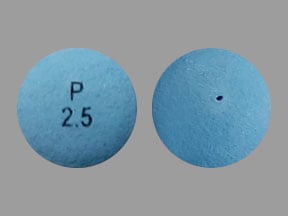
Glipizide ER Coupons & Savings Card – Discount Prices from $14.11
Generic for: Glucotrol xl, Glipizide xl
My prescription
Edit
2.5MG, Glipizide ER (90 Tablet Extended Release 24 Hours)
Select pharmacy

CVS
$30.49
COUPON PRICE
Albertsons
$14.11
COUPON PRICE
Walgreens
$14.94
COUPON PRICE
Walmart
$36.44
COUPON PRICEGlipizide ER savings card
Show this card to your pharmacist
Albertsons
$14.11
BIN
ID
PCN
GRP
011867
LH2DC157E3
HT
LABH001
Powered by
More prescriptions for diabetes type 2
More prescriptions for diabetes type 2
Price history for Glipizide Xl (brand) & Glipizide ER (generic)
90 Tablet Extended Release 24 Hours, 2.5MG
Average retail price for Glipizide Xl
Average retail price for Glipizide ER
Average SaveHealth price for Glipizide ER
Our price history data is based on aggregated prescription data collected from participating pharmacies in America. Our prescription data updates daily to reflect the latest price changes. If you notice a missing data point, it means there wasn't sufficient data available to generate a monetary value for that date.
We analyzed Glipizide ER prices for (2.5MG, 90 Tablet Extended Release 24 Hours) over the last 12 months. The average retail price was $53.77, while the average price using the SaveHealth discount card was $28.09. That's a savings of approximately 47.76% when using our Glipizide ER coupon.
Compared to the generic version, Glipizide Xl had an average price of $46.29 over the same time period. With the SaveHealth savings card, Glipizide ER is 39.32% cheaper on average than Glipizide Xl.
*Retail prices are based on pharmacy claims data, and may not be accurate when we don't have enough claims.
Glipizide ER dosage forms
Dosage Quantity Price from Per unit 2.5MG 90 Tablet Extended Release 24 Hours $24.66 $0.27 2.5MG 1 Tablet Extended Release 24 Hour $9.10 $9.10 2.5MG 30 Tablet Extended Release 24 Hours $12.03 $0.40 2.5MG 60 Tablet Extended Release 24 Hours $15.06 $0.25 2.5MG 100 Tablet Extended Release 24 Hours $25.73 $0.26 5MG 1 Tablet Extended Release 24 Hour $2.59 $2.59 5MG 30 Tablet Extended Release 24 Hours $5.05 $0.17 5MG 90 Tablet Extended Release 24 Hours $16.66 $0.18 5MG 100 Tablet Extended Release 24 Hours $17.52 $0.17 5MG 180 Tablet Extended Release 24 Hours $29.00 $0.16
| Dosage | Quantity | Price from | Per unit |
|---|---|---|---|
| 2.5MG | 90 Tablet Extended Release 24 Hours | $24.66 | $0.27 |
| 2.5MG | 1 Tablet Extended Release 24 Hour | $9.10 | $9.10 |
| 2.5MG | 30 Tablet Extended Release 24 Hours | $12.03 | $0.40 |
| 2.5MG | 60 Tablet Extended Release 24 Hours | $15.06 | $0.25 |
| 2.5MG | 100 Tablet Extended Release 24 Hours | $25.73 | $0.26 |
| 5MG | 1 Tablet Extended Release 24 Hour | $2.59 | $2.59 |
| 5MG | 30 Tablet Extended Release 24 Hours | $5.05 | $0.17 |
| 5MG | 90 Tablet Extended Release 24 Hours | $16.66 | $0.18 |
| 5MG | 100 Tablet Extended Release 24 Hours | $17.52 | $0.17 |
| 5MG | 180 Tablet Extended Release 24 Hours | $29.00 | $0.16 |
| 5MG | 500 Tablet Extended Release 24 Hours | $53.90 | $0.11 |
| 5MG | 1000 Tablet Extended Release 24 Hours | $84.70 | $0.09 |
| 10MG | 1 Tablet Extended Release 24 Hour | $9.13 | $9.13 |
| 10MG | 30 Tablet Extended Release 24 Hours | $12.81 | $0.43 |
| 10MG | 60 Tablet Extended Release 24 Hours | $16.62 | $0.28 |
| 10MG | 90 Tablet Extended Release 24 Hours | $26.92 | $0.30 |
| 10MG | 100 Tablet Extended Release 24 Hours | $28.24 | $0.28 |
| 10MG | 180 Tablet Extended Release 24 Hours | $38.84 | $0.22 |
| 10MG | 500 Tablet Extended Release 24 Hours | $71.80 | $0.14 |
| 10MG | 1000 Tablet Extended Release 24 Hours | $117.30 | $0.12 |
